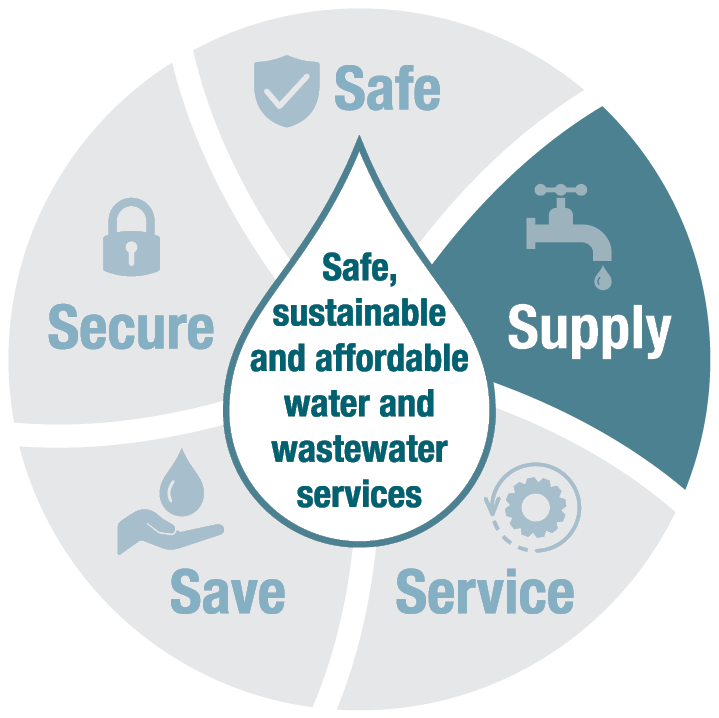Water supply and assets
The Tweed water catchment covers an area of more than 570 square kilometres and is located entirely within the boundary of Tweed Shire.
Geographically, it sits within one of the largest natural erosion calderas in the world, which formed following eruptions of the Wollumbin/Mount Warning Volcano more than 20 million years ago.
The Tweed has an average rainfall of approximately 1600 millimetres a year. Rain that falls within the catchment travels through forests, farms, villages and stormwater drains. As this water moves over the land, it picks up impurities and pathogens, which then need to be removed through the water treatment process.
For much of the year, natural flows in the Tweed River supply our water. During drier months (when flows in the freshwater section of the Tweed River fall below 95 per cent), flows are supplemented by releases from Clarrie Hall Dam situated on Doon Doon Creek - a tributary to the Tweed River.
Water supply networks
There are three water supply networks in the Tweed. The major network supplies Tweed Heads and surrounds, the Tweed Coast and the Murwillumbah district. While two small networks supply the rural villages of Tyalgum and Uki.
Getting the water from the water treatment plants to your taps requires extensive infrastructure, including reservoirs, pump stations and a widespread network of underground water mains and associated fittings and valves.
We sustainably operate and maintain this infrastructure in ways that minimise our impact on the environment and adapt to climate change impacts.
Some common and visible infrastructure are described below. To ensure this system continues to meet the needs of the Tweed now and into the future, Council conducts regular maintenance and repairs, planned upgrades and capital works.
Infrastructure
Trunk Mains:
These are normally large diameter mains that transfer water from plant to reservoir; pump station to reservoir, or reservoir to reservoir. They do not normally have water connections on these mains.
Reticulation Mains:
These mains supply water to the consumer. These are typically installed in road reserve and have services lines off them to each property.
Residents need to be aware that these mains are fairly shallow (can be only 600mm cover) and any digging near the main should not be attempted without full investigation on the location. See Dial Before You Dig
For a general idea of the location of a water main you can line up valves and hydrants that are explained below.
Fire Hydrants:
You will see hydrants anywhere there are water mains. They are under lids that are painted white, marked with a H, and normally there is a yellow triangle marked somewhere nearby pointing to the hydrant as well as a blue delineator (cats eye) in the road or a post to mark the location. All of these marking are important to assist Fire fighters to quickly find the nearest hydrant when required.
Council routinely maintains the hydrants but residents can assist by ensuring hydrant lids are not covered and kept mowed around.
Stop Valves:
Stop valves are also at frequent intervals on water mains, generally at street corners. They look similar to hydrants with their lids painted white but have the marking SV on top of them. These valves are important for Council to be able to quickly isolate relatively small areas of water supply if a water leak or problem occurs. They too should be kept clear and visible.
Important safety information
- All Council owned reservoirs and water pump stations are generally not open to the public.
- Most reservoirs sites are fenced with ladders and access hatches remaining locked.
- No members of public are permitted to in any way climb or traverse to the top of reservoirs without Council’s knowledge or approval. Council has taken all precautions to prevent unauthorised access to reservoir roof’s and any person(s) attempting to gain access are trespassing. Any warning signs should also be noted and obeyed on any of these sites for the public’s safety. Any vandalising including graffiti of reservoirs or pump station buildings will be a matter for the police and Council will pursue offenders.
